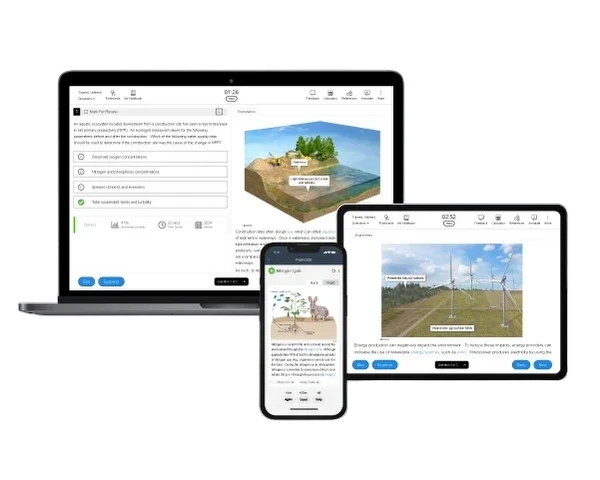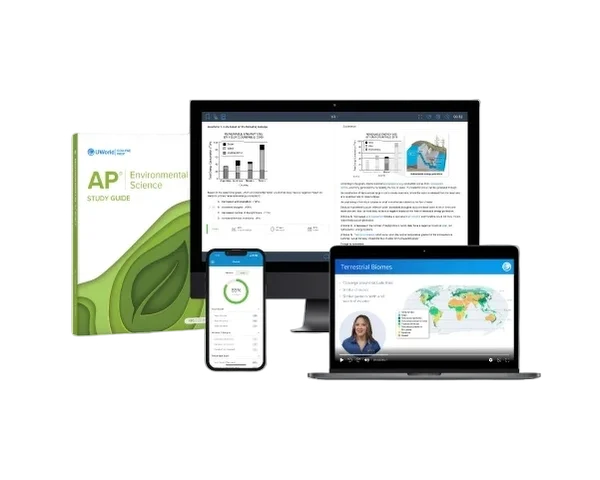This article explores the AP credit and placement policies of several colleges, helping you understand how your AP score may impact your future academic opportunities. Whether you're aiming to score high or simply aiming for improvement, this guide will be a valuable resource in your preparation.
AP Environmental Science Score Map
The AP Environmental Science exam is divided into 2 sections. Section 1 consists of multiple-choice questions (MCQs), and Section 2 consists of free-response questions (FRQs). You will complete both sections on BluebookTM, the digital platform used for the exam. The MCQs are graded by computer, with each correct answer contributing to the multiple-choice score. The free-response section, which includes essays and performance tasks, is scored at the annual AP Reading in June by college professors and experienced AP teachers.
To determine your final AP Environmental Science exam score, the raw scores for both sections are first calculated. Next, the raw section scores are combined to generate a composite score. Finally, the composite score is converted to a scaled score ranging from 1 to 5 through a statistical process to determine your final AP Environmental Science exam score.
Our AP Environmental Science Study Guide, available in digital and print, will help you master key concepts and score higher.
AP Environmental Science Scoring Guidelines and Rubrics
The score of the APES MCQ section is determined by the number of questions you answer correctly. There is no penalty for incorrect answers or unanswered questions, so make your best guess. In contrast, the AP Environmental Science exam score map of the FRQ sections depends on how well you analyze and respond to the prompt in each question. Since there is no single correct answer in the APES FRQ section, exam graders use the rubric below to maintain consistency in the scoring structure.
| Reporting Category | Points | Scoring Criteria |
|---|---|---|
| Identify (0-1 point) |
1 point | To identify the required information present in the question in the form of study, data, diagram, graph, or example. |
| Describe (0-1 point) |
1 point | To describe why and how certain events and experiments result the way they do (as per the data/information given in the question). |
| Explain (0-1 point) |
1 point | To explain how and why certain events and experiments affect, support, or refute an occurrence. (Support your answer with specific examples or relevant information.) |
| Make a Claim (0-1 point) |
1 point | To make a claim about an event or experience, given in the question - whether it is true or false. (Support your answer with specific examples or relevant information.) |
| Justify (0-1 point) |
1 point | To justify the action or solution proposed in the question. (Support your answer with specific examples or relevant information.) |
| Propose (0-1 point) |
1 point | To propose a solution to the problem or situation given in the question. |
| Calculate & Show your work (0-1 point) | 1 point | To do the necessary calculations as per the information required in the question. Remember to show your work neatly and legibly. |
AP Environmental Science Scoring Table
When you receive your results, the only score displayed will be your final AP Environmental Science score map, ranging from 1 to 5. You will not see your composite score or raw section scores on your score report. Note that the following criteria are used by colleges and universities to determine which students qualify for college credit and/or placement.
| AP Exam Score | Qualification | College Grade Equivalent |
|---|---|---|
| 5 | Extremely well-qualified | A+ or A |
| 4 | Very well-qualified | A-, B+, or B |
| 3 | Qualified | B-, C+, or C |
| 2 | Possibly Qualified | — |
| 1 | No recommendation | — |
Generally, a score of 3 or higher is considered a good AP Environmental Science score for AP students. Remember, every college has its own AP credit policy, so be sure to go through the official website of your prospective colleges well ahead of time to know all the AP credit policies and requirements.

AP Environmental Science Score Distributions
Every year, thousands of students from all around the world take the APES exam. In 2024, out of 236,579 students who took the AP ES exam, 54.1% received a score of 3 or higher. Let's look at the APES score distribution from 2020 to 2024.
| Score | 2024 | 2023 | 2022 | 2021 | 2020 |
|---|---|---|---|---|---|
| % of Students | |||||
| 5 | 9.2% | 8.27% | 8.9% | 7.0% | 11.9% |
| 4 | 27.5% | 28.38% | 27.4% | 24.9% | 28.5% |
| 3 | 17.4% | 17.01% | 17.5% | 18.5% | 13.0% |
| 2 | 25.8% | 26.39% | 25.9% | 27.6% | 25.5% |
| 1 | 20.1% | 19.94% | 20.3% | 22.1% | 21.0% |
AP Environmental Science Minimum Score Requirement for College Credits
To be eligible for credit and/or placement, most colleges require students to score a minimum of 3 on the AP Environmental Science exam.
To save you time, we have compiled a list of a few colleges and their AP Environmental Science credit policies and score map. Keep in mind that admission policies and AP credit requirements can change, so be sure to check the specific requirements of your prospective colleges before applying.
| Institution | AP Score | AP Recognition | Equivalent Course | Credits |
|---|---|---|---|---|
| Colorado State University | 3/4/5 | Credit + Placement |
NR 1++3L | 3 credits |
| Oregon State University | 3/4/5 | Credit + Placement |
ENSC LDT | 4 credit |
| Rutgers University | 4/5 | Credit + Placement |
11:375:101 | 3 credits |
| SUNY College of Environmental Science and Forestry | 3/4/5 | Credit + Placement |
- | 3 credits |
| Texas A&M University | 3/4/5 | Credit + Placement |
GEOS 105 | 3 credits |
| University of California, Davis | 3/4/5 | Credit + Placement |
Environmental Science and Policy 10 | 4 credits |
| University of Lynchburg | 4/5 | Credit + Placement |
ENVS 111, 112 | 8 credits |
| University of Texas at Austin | 3/4/5 | Credit + Placement |
GEO 302P | 3 Credits |
| University of Vermont | 3/4/5 | Credit + Placement |
ENSC 1010 | 3 credits |
Use UWorld's AP Environmental Science practice tests to prepare for the exam and achieve your target score. These resources are designed to assist you in achieving your desired score by emphasizing crucial topics, tracking your progress, and enhancing your areas of improvement. Start your free trial today!
Frequently Asked Questions (FAQs)
When do AP Environmental Science scores come out?
APES scores are generally released in July. You need to log in with your College Board® account to access your results.
What is a good AP Environmental Science score?
A good AP Environmental Science score is typically a 3 or higher. This demonstrates proficiency in the subject and may earn college credit or advanced placement. To improve your score, focus on understanding key topics (e.g., ecosystems, pollution), practice with sample questions, and manage your time effectively during the exam.
Is a 4 on AP Environmental Science good?
Yes. A 4 is considered a good score. Many universities prefer AP Environmental Science scores above 3 for college credits and advanced placement.
What is the pass rate of the AP Environmental Science exam?
The pass rate of the AP Environmental Science exam was 54.1% in 2024 and 53.7% in 2023.
Is it possible to get a 5 on AP Environmental Science while self-studying for the 2024 exam?
You can definitely achieve a score of 5 with the appropriate study materials, an effective study strategy, and reliable review resources. Join thousands of students using UWorld’s AP Environmental Science Course to prepare efficiently!

References
- (2024). How are AP Exams scored? (n.d.) AP Students. Retrieved on December 17, 2024, from https://apstudents.collegeboard.org/help-center/how-are-ap-exams-scored
- (2024). Student Score Distribution. AP Central. Retrieved on December 17, 2024, from https://apstudents.collegeboard.org/about-ap-scores/score-distributions/ap-environmental-studies
Read More Related Articles
If you're aware of the exam format, you'll have a leg up on your peers. Check out this AP Environmental Science guide that breaks down the exam components, question types, etc.
AP Environmental Science Course and Exam DescriptionDon’t have time to review the complete College Board’s CED pdf? You can easily get a quick summary of all the units, topics, and key concepts of the APES course here in no time.
How to Study for AP Environmental ScienceAre you looking for exam-winning APES strategies? We've put together an AP Environmental Science study tips & tricks that includes all the info you need to get a 5 on the exam.
Best AP Environmental Science Course ReviewDiscover the best APES prep courses available. Compare key features, pricings, reviews, and benefits to select the course that best fits your learning.
Best AP Environmental Science Study Guide ComparisonConfused about which study guide to opt for? The right study guide can make or break your score. We compare the best ones so you don’t waste time on the wrong choice!
How to Self-Study for AP Environmental ScienceNo class? No problem! You can crush the APES exam on your own by following this step-by-step guide to mastering the exam, which is filled with expert-recommended tips and tricks.



